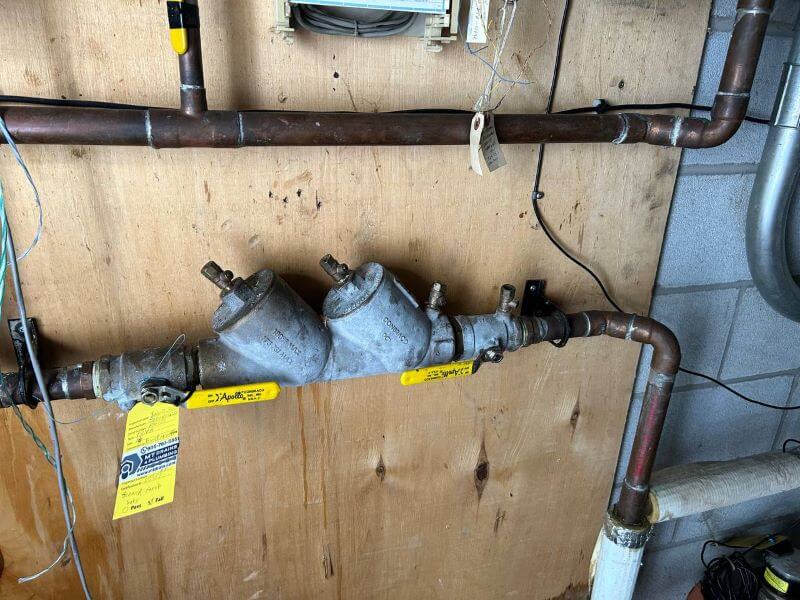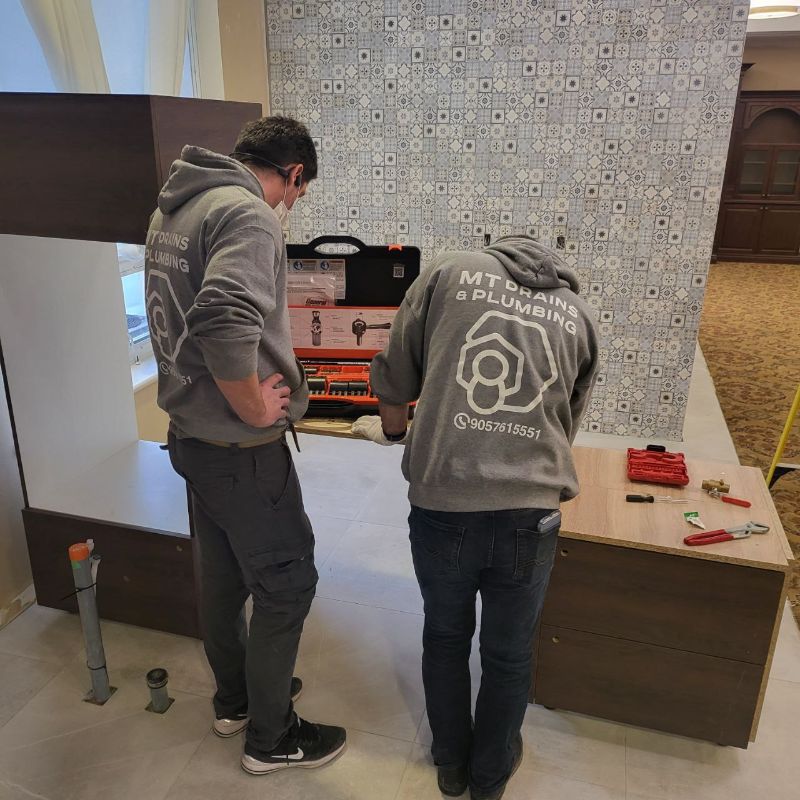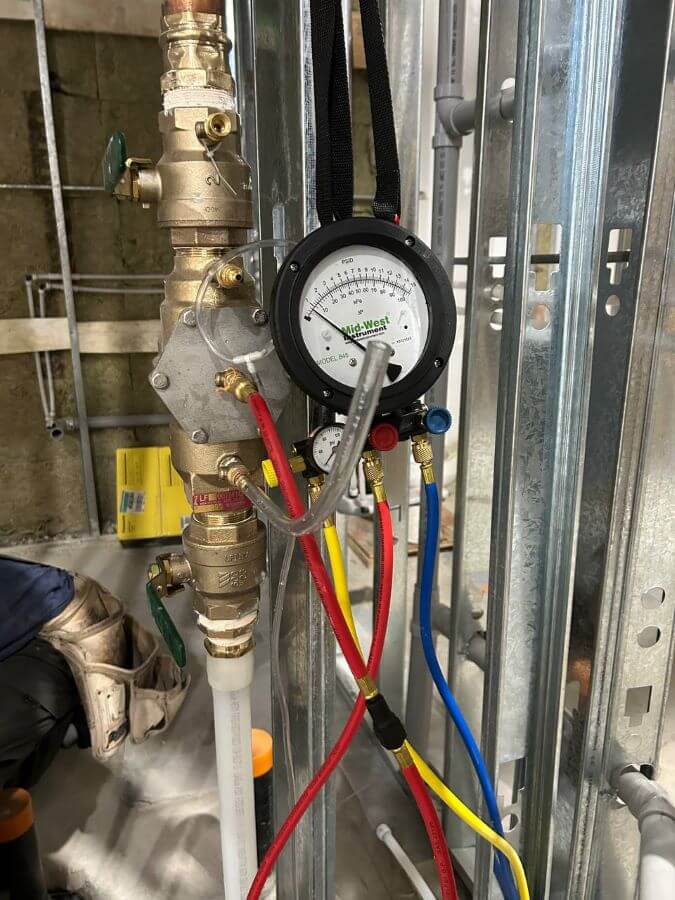At MT Drains & Plumbing, we are dedicated to ensuring the safety and quality of the public water supply. Our comprehensive backflow prevention services in Newmarket encompass annual inspections and testing, fully compliant with Newmarket’s stringent requirements.


The City of Newmarket has implemented a mandatory requirement, as stated in the Water Supply By-law, for property owners of industrial, commercial, institutional, and certain residential properties to install backflow prevention devices on their water supply lines in Newmarket. This regulation also applies to construction sites in Newmarket. The purpose of this requirement is to safeguard the city’s drinking water by isolating buildings from the municipal water distribution system and preventing the entry of contaminants into the drinking water supply.
Our skilled team ensures your water remains uncontaminated.
We navigate Newmarket's regulations seamlessly.
We handle all reporting, ensuring compliance with ease.
We value your time and deliver efficient service.
We tailor our services to your needs.
Quality service at affordable rates.

We offer a range of backflow prevention services to help you comply with Newmarket’s requirements and protect public health:
Our expertise spans commercial, industrial, and residential properties, enabling us to recommend the appropriate backflow prevention device based on the risk classification.
Cross-connection refers to any connection between a drinking water system and potential contaminants in Newmarket, necessitating control to prevent backflow of contaminated water.
Backflow is the reversal of water flow in a plumbing system in Newmarket. It results from back siphonage and back pressure, posing contamination risks.
A backflow preventer is a device designed to prevent backflow in Newmarket, with different types available based on application and protection level.
Why Backflow Prevention Devices Need Periodic Testing in Newmarket
Regular testing of backflow preventers is essential in Newmarket for:
Periodic testing is necessary for several reasons:
Controlling cross-connections is vital in Newmarket to prevent water contamination, categorizing backflow hazards based on potential impact, and ensuring water suppliers prioritize public water system safety and integrity.
1. Double Check Valve Assembly (DCVA): Suitable for “moderate hazard” facilities in Newmarket, DCVAs protect against low to moderate backflow risk.
2. Reduced Pressure Principle Assembly (RP): Required for “severe hazard” facilities in Newmarket, RPs offer comprehensive protection against high-risk backflow incidents.
Back pressure occurs when private water system pressure exceeds the City’s water supply system pressure in Newmarket. Factors like pumps, elevated tanks, temperature changes in boiler systems, and local pressure events can cause back pressure, pushing water from the private system back into the City’s distribution system.
Back siphonage results from City water supply pressure dropping below that of a private system in Newmarket. It can be triggered by firefighting or water main breaks, pulling contaminated water from the private system into the City’s distribution system.
In summary, understanding backflow terms, the importance of backflow prevention, and the need for periodic testing of backflow preventers is crucial for safeguarding the integrity and safety of public water systems.
1. Safeguarding Water Quality: Effective backflow prevention maintains water supply integrity and cleanliness.
2. Protecting Public Health: By preventing contaminated water entry, backflow prevention ensures safe drinking water.
3. Regulatory Compliance: Adhering to by-laws, like Newmarket’s, is essential to meet regulatory requirements and protect public health.
At MT Drains & Plumbing, we take backflow prevention seriously. We are committed to helping our clients protect public health and safety by providing comprehensive backflow prevention services. Contact us today to learn more about our services and how we can help you comply with Richmond Hill’s requirements for backflow prevention.